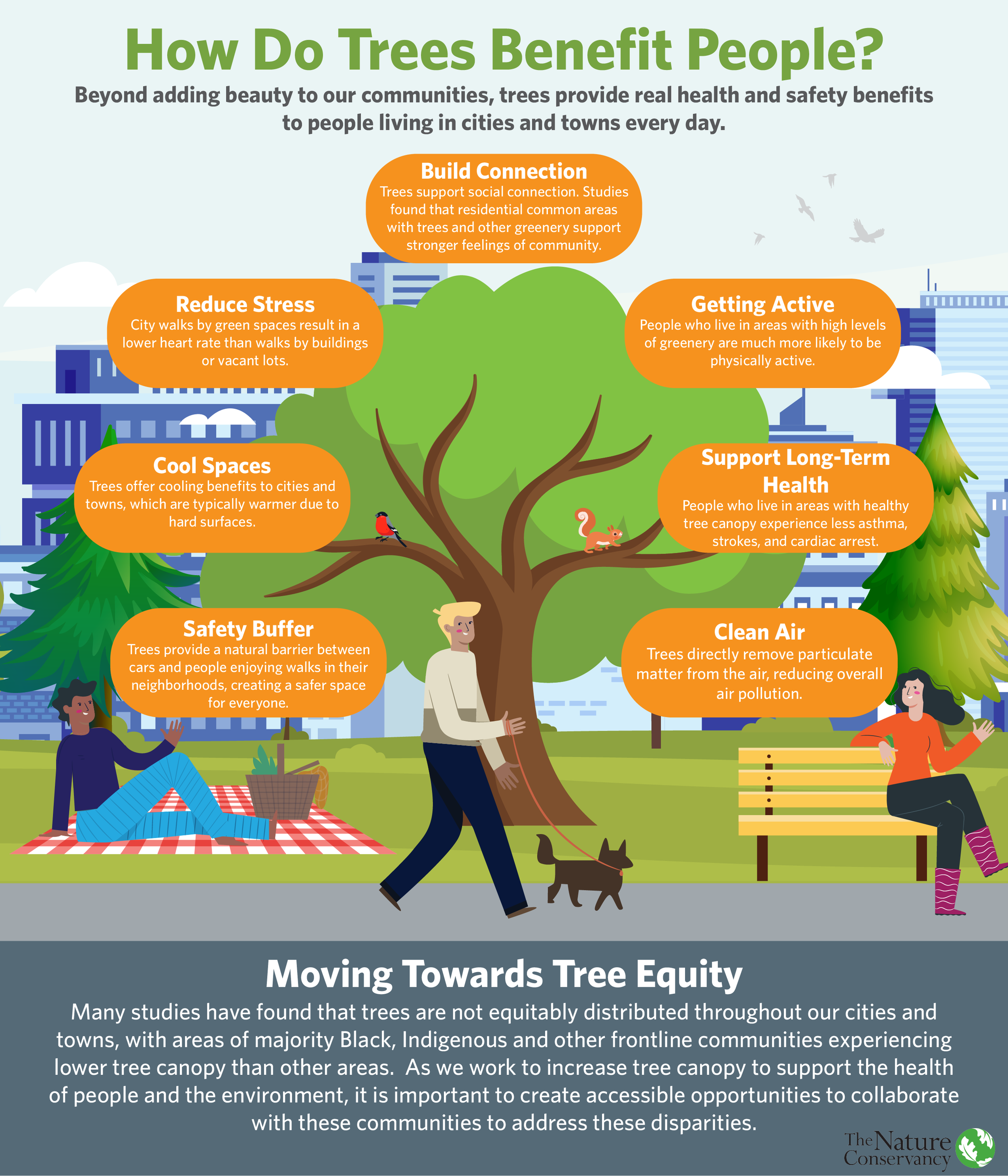By Jessica Bourque, freelance writer
Photos © Hannah Letinich
Whirring power tools and far-off metal clanging nearly drown out Roseann Barnhill’s voice, because today, like many days, she is on a jobsite. This afternoon, she is installing a cistern, but as the Director of Ecology for Dirt Corps LLC, Barnhill works on a variety of environmental design-build projects.
Unfazed by the noise, she continues talking.
Dirt Corps staff member Veronica Villareal looks on while Dirt Corps Director of Ecology Roseann Barnhill explains the importance of planting native shrubs at Hamm Creek near South Park.
“Having a place where people can adapt varying physical abilities in this line of work is really pretty revolutionary. A lot of people wouldn’t get hired on a build because there’s a perception that they wouldn’t keep up,” she says. “We of course have a different view on that.”
Equity, inclusivity, and accessibility are cornerstones of Dirt Corps’ approach to conservation. The community-based project turned business began six years ago in South Seattle, when a group of community activists and environmental experts—many of whom were underrepresented in the conservation profession—coalesced around a shared vision for healthy communities and greater access to green jobs.
Today, Dirt Corps provides employment opportunities and on-the-job training for adults, with intentional recruitment among women, people of color, LGBTQ people, and veterans. Dirt Corps also partners with local youth organizations, and with funding from The Nature Conservancy, Dirt Corps has expanded youth outreach in under-resourced neighborhoods across Puget Sound, exposing more young people to green careers through hands-on job opportunities.
“We teach youth best management practices. Even if the task for the day is as simple as pulling blackberries, they are exposed to the skill sets needed to get a job,” Barnhill says.
The youth organizations—which include the Duwamish Valley Youth Corps, Rainier Beach Action Coalition, Little Brook Youth Corps and others—partner with Dirt Corps to provide paid training to young people on the topics of invasive species removal, habitat restoration, urban forestry, air and water quality monitoring, and other areas of environmental stewardship and maintenance.
Dirt Corps program manager Andrew Schiffer works with community members at a tree give-away in South Seattle.
Beyond employable skills and experience, these programs also build confidence, develop leadership skills, and foster new personal connections between young people and the nature in their communities. Barnhill says the bonds between people and nature alongside an emphasis on maintenance are essential to the success of community-based ecological projects, particularly in communities where natural infrastructure investments are less frequent.
Dirt Corps program manager Andrew Schiffer works with a member of Little Brook Youth Corps to measure a tree’s circumference.
Part of strengthening relationships between community members and environment improvement projects involves tackling what Dirt Corps program manager Andrew Schiffer calls “volunteer culture”, or the pervasiveness and privilege of unpaid, volunteer labor that is often expected to be leveraged to maintain community environmental projects.
All youth participating in Dirt Corps partner programs are paid, and as a business, Dirt Corps aims to become a leader in offering paid training opportunities for adults, providing a pathway to green careers for people who may lack access to the field.
“The Nature Conservancy has been a great supporter for us. Maintenance is not an area that funders will give grants in. Everyone wants to build new, shiny things, and there’s an expectation to find volunteer stewards,” Schiffer says. “I think that excludes people from being exposed to and recruited for this work. A lot of people in our communities don’t have the energy, time, capacity, or personal funding to spend the day volunteering.”
For the Conservancy, the partnership with Dirt Corps has been invaluable says Hannah Kett, Puget Sound Cities Program Manager. Dirt Corps’ local perspective, community relationships, and thought partnership enable more authentic and equitable engagement between the Conservancy and community conservation and environmental justice.
“TNC serves as a pretty prominent example of a traditionally white environmental organization that has historically not engaged frontline communities effectively. That can be a hindrance for our partners on the ground,” Kett says. “We have had challenging but direct conversations with Dirt Corps and their partners about how the Conservancy can be a better partner and less of a barrier to groups on the ground.”
The Conservancy and Dirt Corps will continue addressing the barriers to conservation careers through a new taskforce that convenes regional partners—including organizations, government agencies and businesses—that are committed to identifying and dismantling barriers to this field of work on a more regional level.
TNC Puget Sound cities program manager Hannah Kett and Dirt Corps program manager Andrew Schiffer at a tree giveaway at the South Park Community Center.
Schiffer, who is also an active organizer in the LGBTQ community, says that in addition to providing living-wage opportunities, cultivating inclusive workplaces is another impactful way to welcome new conservationists. Dress codes, lack of childcare accommodations, language barriers, and other factors can contribute to unwelcome or prohibitive working environments if not approached with cultural and socioeconomic understanding.
“The assumptions around abilities and capabilities is just very different with us,” Schiffer says. “We’ve definitely had trainees tell us, ‘This environment makes me feel so much more comfortable than anywhere I’ve worked.’ We’re really proud of that.”




























